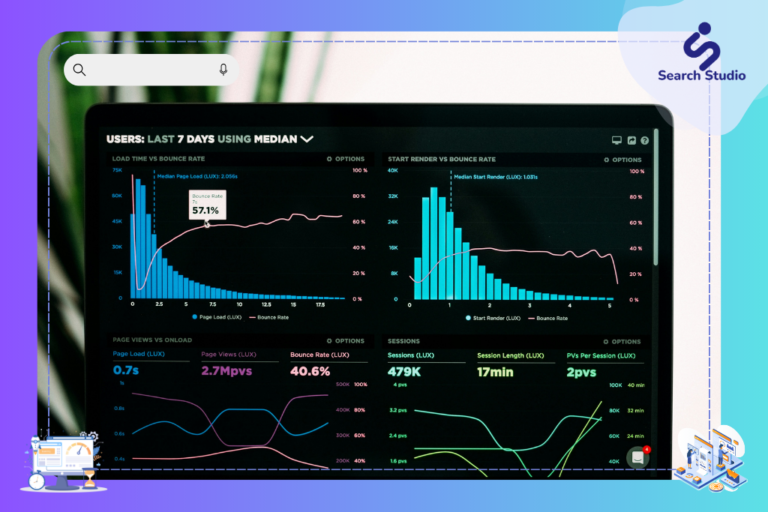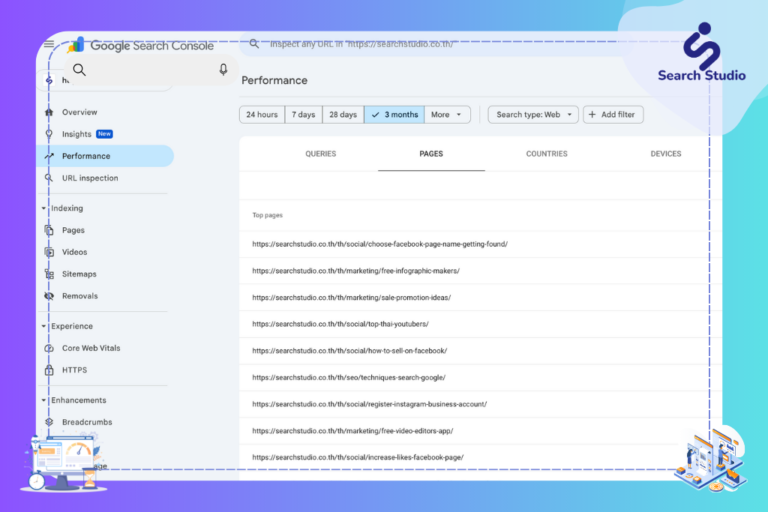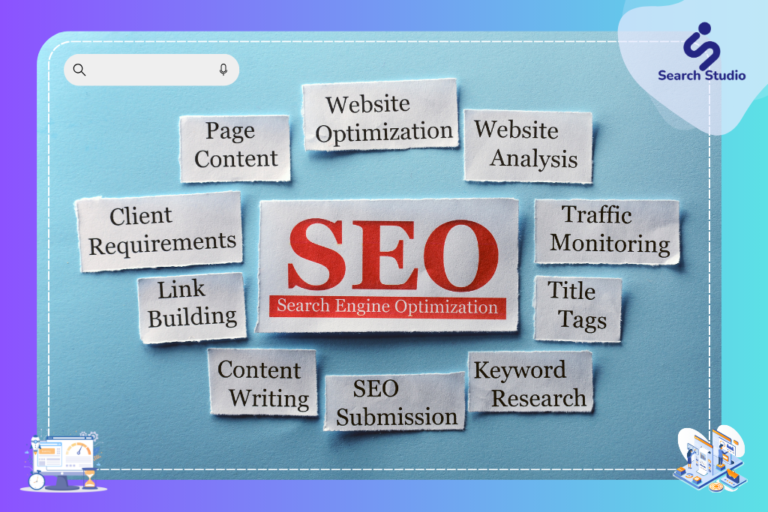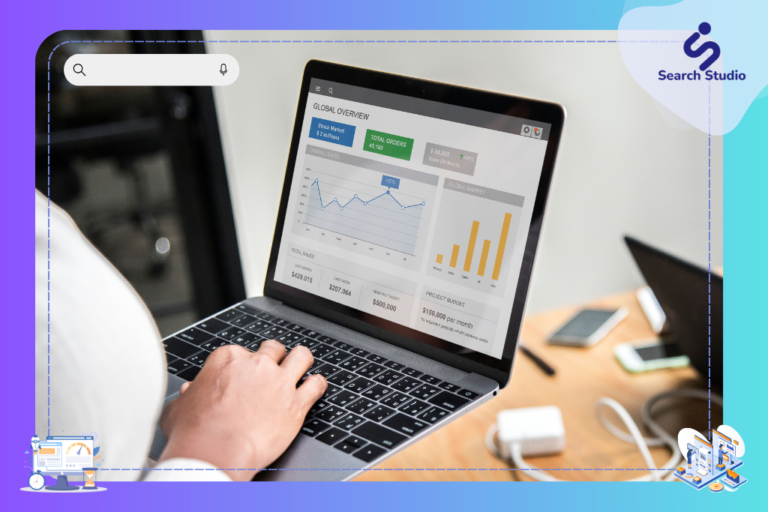Few things are more stressful for a business owner than logging into Google Analytics and seeing a sharp decline in visitors. One day, your site is performing well, and the next, your website traffic dropped suddenly. It feels like something broke overnight.
The truth is, sudden traffic loss happens to almost every website. It might be technical, it might be an SEO issue, or it could even be seasonal. The key is not to panic but to diagnose the cause and act quickly.
So how do I know if a website is down? This guide walks through the most common reasons for traffic loss, how to identify them, and what you can do to recover.
Step One: Rule Out Technical Problems

Not every traffic issue is SEO-related. Sometimes your website simply isn’t accessible, and that alone can cause traffic to disappear. Before digging into rankings, confirm that your site is live and functioning correctly.
Start by checking for common technical problems:
- Expired SSL certificates: These can block users from accessing your site.
- 404 errors: Missing pages frustrate users and weaken SEO.
- Robots.txt misconfiguration: A small change could block Google from crawling your site.
- Redirect chains or loops: These slow your site and confuse search engines.
- Server errors (500s): Indicate deeper technical issues that need urgent fixes.
Technical errors are often the fastest to repair, and once fixed, traffic usually rebounds quickly. For a more thorough review, use professional auditing tools. Run a site crawl with a tool like Ahrefs Site Audit or Screaming Frog. These scans often surface hidden errors, such as broken internal links, missing redirects, or duplicate meta tags, that may not be obvious in analytics but can lead to drops.
Step Two: Check Google Rankings

If the site is accessible, the next step is visibility. A sudden drop in organic traffic often means a loss of keyword positions.
Log into Google Search Console and check the Performance report. Look at clicks, impressions, and average position over time. Key questions include:
- Did your google rankings drop sitewide, or just on a few pages?
- Was the google ranking dropped dramatically in a single day, or has it been a slow decline?
- Which queries or landing pages lost the most traffic?
A sudden drop in Google rankings often points to an algorithm change. A slow decline usually means competitors are outranking you. Don’t forget to separate organic and paid traffic too, sometimes business owners think my website traffic is going down, but the cause is simply an expired ad campaign.
Step Three: Understand the Possible Reasons
Now that you know the drop is real, it’s time to identify the cause. By asking why is my website traffic dropping and checking each factor, you’ll pinpoint the real cause. There are many reasons for drop in organic traffic, and they often overlap.

1. Google Algorithm Updates
Google frequently changes its ranking systems. Core Updates can shift entire industries overnight. Other updates include:
- Helpful Content Update: Promotes people-first content, penalizes thin or auto-generated articles.
- Spam Updates: Target unnatural backlinks or manipulative tactics.
- Product Reviews Updates: Reward in-depth, experience-driven reviews.
Compare year-over-year traffic for affected pages. Seasonal changes or content updates often appear when you look at long-term data, helping you avoid misdiagnosing normal fluctuations as penalties. If your Google organic traffic dropped across many pages, check SEO news sources to see if a new update rolled out.
2. Competitor Improvements
Even if you didn’t change anything, competitors might have. They may publish stronger content, gain new backlinks, or optimize better. What feels like your Google rankings dropped may simply be someone else’s gains.
3. Content Changes
Small edits can have big consequences. Did you remove sections, change SEO-friendly title tags, or restructure a page? If so, you may have unintentionally reduced relevance.
4. Technical SEO Issues
Even without downtime, technical problems affect rankings. Slow load times, poor mobile experience, or missing schema markup all reduce visibility.
5. Backlink Loss
Backlinks are signals of authority. If a few important sites removed links, your ranking strength may have weakened.
6. Seasonality and Demand
Some industries naturally fluctuate. Ski resorts dip in summer. Online learning sites spike before exam seasons. In these cases, a drop in organic traffic isn’t an error, it’s just seasonality.
7. AI-Driven Traffic Shifts
Starting in early 2025, many websites are experiencing what SEO professionals call “The Great Decoupling” a mismatch between high impressions and low click-through rates. AI Overviews and AI Mode in Google increasingly provide answers directly in search results, reducing user clicks.
Key points:
- Your pages may appear more often, but users get answers from AI Overview without clicking.
- Google logs multiple impressions (e.g., from organic listing and AI Overview), yet actual traffic may fall.
- Depending on query type, businesses have seen traffic declines ranging from 15% to 64%, especially in news or how‑to content.
Use Google Search Console to compare impressions and clicks. If impressions are steady or rising while clicks fall, you’re experiencing AI-driven zero-click behavior. This confirms the issue isn’t rankings but reduced user need to click through. Therefore, by asking why is my website traffic dropping and checking each factor, you’ll pinpoint the real cause.
Step Four: Analyze Page-Level Performance

When traffic drops, it’s important to zoom in on which pages are most affected. A sitewide decline usually points to a technical or algorithmic issue, but if only certain pages are losing traffic, the cause is likely more specific.
Here’s what to check:
- Top pages in Google Search Console: Identify if traffic loss is concentrated in a few high-traffic pages or spread evenly.
- Content freshness: Outdated posts, guides, or product pages may lose visibility as competitors publish updated content.
- Search intent shifts: Sometimes Google reinterprets what a query means, favoring different page types (e.g., video results instead of blog posts).
- On-page changes: Review if you (or your team) recently edited titles, headings, or internal links that could have affected rankings.
By analyzing performance at the page level, you avoid treating the issue as a sitewide problem when it may only be a handful of key pages driving the decline. Once identified, those pages can be refreshed with updated data, improved structure, and stronger optimization.
How to Get Google Rankings Back If Your Positions Dropped?

Once you’ve found the cause, it’s time to take action. The fix depends on the type of problem.
- If technical: Fix errors, restore uptime, improve site speed, and ensure mobile usability.
- If algorithmic: Study pages that gained rankings. Improve content quality, add depth, and demonstrate expertise.
- If content lost relevance: Refresh articles, update data, and expand coverage with FAQs and subtopics.
- If competitors overtook you: Run a competitive audit. Match their strengths while finding gaps to exploit.
- If backlinks were lost: Rebuild with outreach, PR campaigns, or creating link-worthy assets like original research.
- If AI caused the decline: Create content structured for AI citation (clear answers, data tables, definitions), and diversify into email, branded search, and social channels.
Every recovery strategy should be based on data, because guessing rarely works when addressing a drop in organic traffic. Recovery often takes weeks or months, but most sites regain strength and sometimes surpass their old performance, when they treat drops as opportunities to improve.

A sudden drop in organic traffic can be alarming, but it’s not the end of the road. When you ask why has my website traffic dropped, the answer is almost always discoverable with the right tools. Once you fix the root cause, you not only recover but often end up with a stronger site than before.
At Search Studio, we can help diagnose sudden traffic changes, crafting data-driven recovery strategies, and building long-term SEO resilience. With our clear reporting and customized strategies, you’ll always understand what’s happening with your site and why, so you can make confident decisions that drive sustainable growth. If your site has lost visibility, don’t wait, reach out and let us help you not just recover, but grow stronger than before.
A sudden overnight drop is usually caused by one of three things: a technical issue (site down, tracking broken, robots.txt blocking), a Google update that hit your rankings, or a change in your own campaigns (ads paused, email campaigns stopped, etc.).
Start by ruling out technical problems and checking Google Search Console for errors or manual actions. Then compare your traffic with known Google algorithm update dates and look for patterns on specific pages or queries.
Look at the date your traffic started dropping and compare it with Google’s public ranking update timeline. Then, in Google Search Console, check whether:
- Many pages lost rankings at the same time
- Certain types of content (e.g., product reviews, how-to guides) were hit harder
If there’s a strong date match and a pattern across similar pages, it’s likely related to an update, not a single mistake on your side.
There’s no magic switch, but you can speed things up by:
- Fixing any technical errors immediately (404s, 500s, blocked crawling, slow pages).
- Updating and expanding thin or outdated content on affected pages.
- Improving internal linking so your most important pages get more authority and crawl paths.
- Earning a few strong backlinks to your key recovery pages.
For most sites, focusing on a small set of priority pages brings faster and more noticeable results than trying to fix everything at once.
If your organic traffic has dropped more than 20-30% and hasn’t started to recover after you’ve ruled out obvious technical and tracking issues, it’s a good time to bring in help. An experienced SEO team can:
- Diagnose whether it’s algorithmic, technical, content-related, or AI-driven
- Prioritize fixes by impact and effort
- Build a realistic recovery plan and track progress






